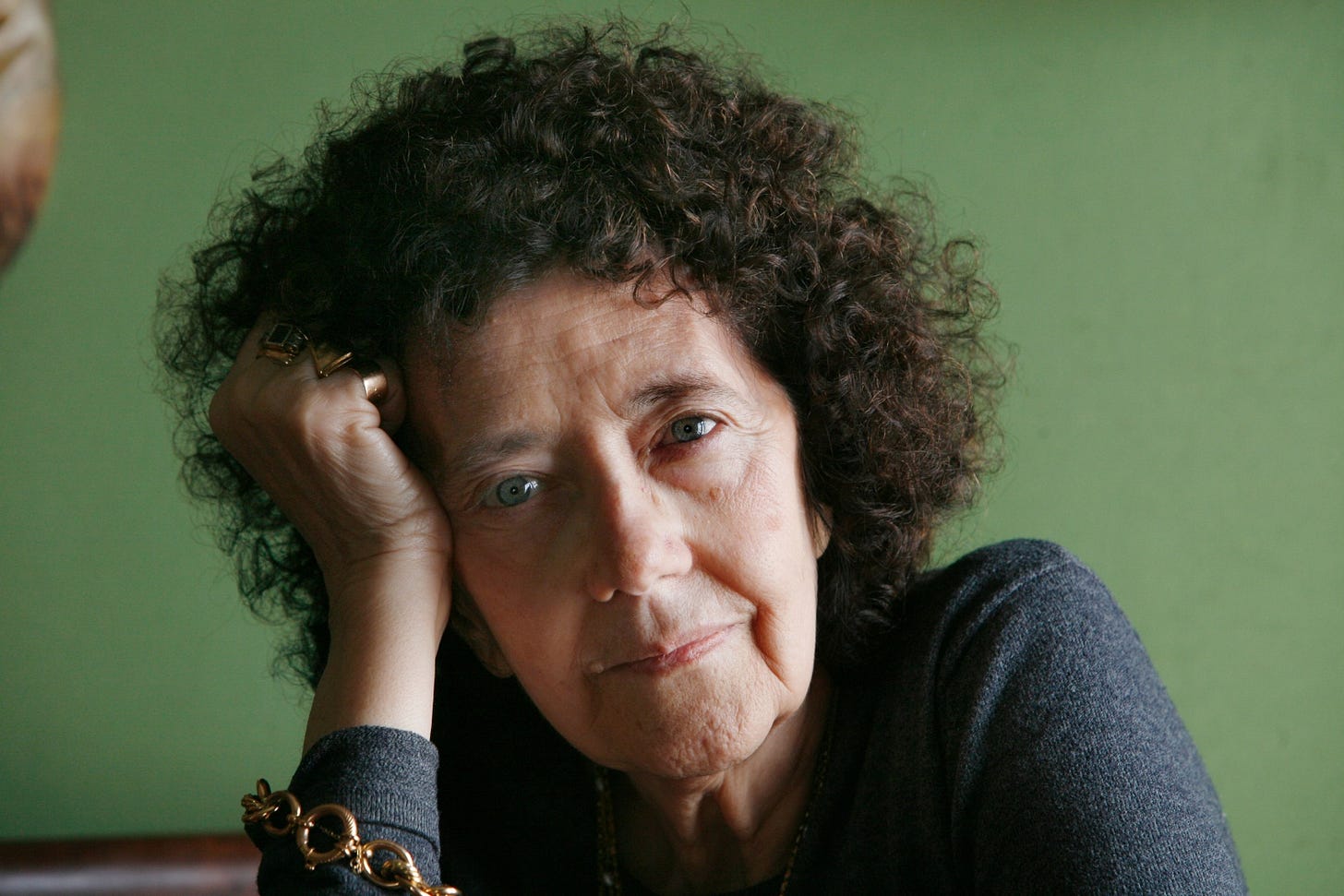Writer Maria Teresa Horta dies at 87
She was recently included in a list compiled by the BBC of the 100 most influential and inspiring women worldwide.

Portuguese writer Maria Teresa Horta, the last of the “Three Marias,” passed away on Tuesday, February 4, at the age of 87 in Lisbon, as announced by her publisher, Dom Quixote.
“A loss of immeasurable proportions for Portuguese literature, poetry, journalism, and feminism, to which Maria Teresa Horta proudly dedicated much of her life,” read the statement from the publisher.
In December, Horta was included in a list compiled by the British public broadcaster BBC of the 100 most influential and inspiring women worldwide, alongside artists, activists, lawyers, and scientists - as reported then by PORTUGAL DECODED.
Feminist Resistance
In 2022, marking the 50th anniversary of the groundbreaking Novas Cartas Portuguesas (New Portuguese Letters), written with Maria Isabel Barreno and Maria Velho da Costa, Horta stated in an interview that the book had long been disregarded in Portugal.
She expressed her perplexity at the sudden resurgence of interest in the work five decades after its publication.
Dom Quixote lamented “the passing of one of the most remarkable and admirable figures in Portuguese literature, a recognized defender of women’s rights and freedom at a time when it was not always easy to do so.” Horta’s body of work remains deeply embedded in the memory of generations of readers.
New Portuguese Letters was based on love letters addressed to a French officer by Mariana Alcoforado and served as a bold manifesto against the prevailing ideology of pre-April 25 Portugal.
The book denounced colonial war, the oppression of women, judicial persecution, forced emigration, and fascist violence.
A landmark in feminist literature and the fight for freedom, the book faced significant censorship. It was banned by the dictatorship, and its authors were put on trial. Despite this, it has remained a defining work of resistance and continues to resonate with new generations.
A Life Dedicated to Literature
Born in Lisbon on May 20, 1937, Maria Teresa Horta built a career marked by audacity, passion, and an unwavering refusal to accept societal constraints.
She made her literary debut in poetry in 1960, later expanding her repertoire to novels and short stories. Since the 1960s, her writing has challenged conventions, blending lyricism and transgression with a deeply personal style.
Her poetry often explored themes of eroticism, freedom, and female identity, making it a space of resistance.
One of her most iconic works, Minha Senhora de Mim (1971), asserted a woman’s right to be the subject of desire at a time when Portugal was still under the repressive Estado Novo regime.
Horta’s literary career spans numerous publications across various genres, but it is in poetry that her voice is most powerfully felt.
Works like Os Anjos (1983), A Paixão Segundo Constança H. (1994), and Poemas do Brasil (2011) reaffirm her intense and passionate writing style, where the body and the word intertwine in a continuous assertion of identity and freedom.
With works published in Brazil, France, and Italy, Horta was the first woman to hold a leadership position in cineclubism in Portugal and is regarded as one of the foremost figures of Lusophone feminism.
Celebrated Career
Throughout her career, Horta received numerous accolades. In recent years, she was awarded the 2017 Authors’ Prize for Best Poetry Book (Anunciações), the Cultural Merit Medal from the Ministry of Culture in 2020, the Casino da Póvoa Literary Prize in 2021 for Estranhezas, and in 2022, she was honored as a Grand Officer of the Order of Liberty by the President of Portugal.
Maria Teresa Horta’s influence extends beyond her literary achievements—she was a fearless advocate for freedom of expression and women’s rights. Her poetry remains an enduring symbol of resistance, a testament to the transformative power of words, and a reminder that some voices can never be silenced.
Horta attended the Faculty of Letters at the University of Lisbon, was a leader at the ABC Cine-Clube, an active participant in the feminist movement, a journalist for A Capital, and a director of Mulheres magazine.
Her legacy will continue to inspire generations to come.



